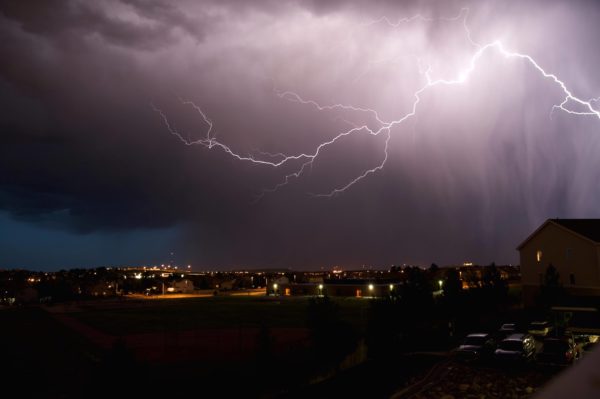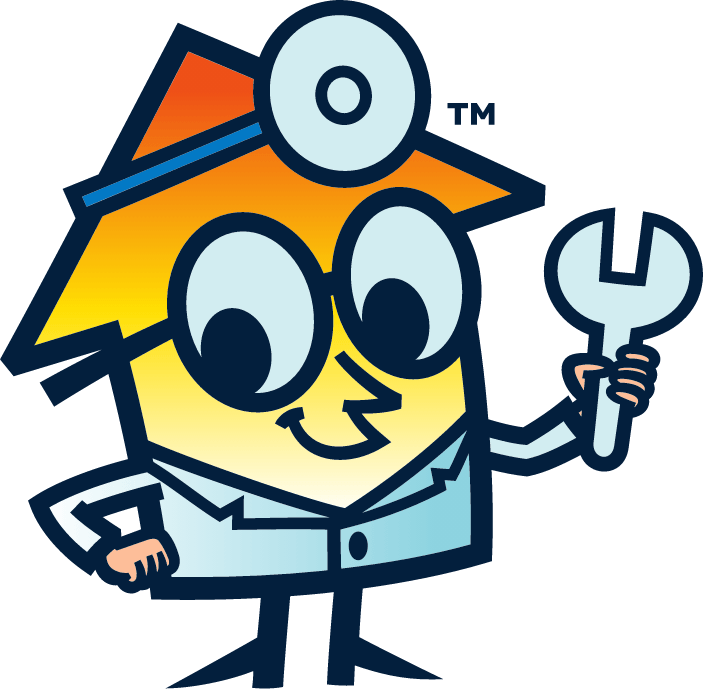Updated August 7, 2024
Having the power go out in the middle of the summer can be a nightmare. Unless you have a secondary power source like a generator or a solar backup battery, you won’t be able to keep your home cool. A generator can be a huge help by ensuring you have access to electricity whenever a blackout occurs so you can keep your AC running and your home cool. However, it is important that you pay careful attention to the generator’s capacity to ensure it can provide enough electricity to power your AC. Here is all you need to know about running your air conditioner off a generator and how much power it takes.
Contact Us Today for Generator Installation
Portable vs. Standby Generators
We first need to differentiate between the distinct types of generators and what they can and can’t do. Portable generators are small, less powerful units such as you would use in an RV, camping, or tailgating. However, some extremely powerful portable generators can produce up to 17,500 watts of electricity. This is more than enough power to run a small to mid-sized AC system and many other devices as well.
The issue with portable generators is that they only work with things that you can plug directly into them. This means that you could use a portable generator outside your house and run an extension cord to power a window AC unit or even your refrigerator. However, you obviously wouldn’t be able to power your home’s central air conditioning or any other hard-wired appliances with a portable generator.
Standby or backup generators overcome this problem and can enable you to run your central AC system as well as power the lighting and the rest of your home and appliances. These units are wired directly into your home’s electrical system. The automatic transfer switch kicks in to switch your home’s electrical system over to the generator when the power goes out. As soon as the controller detects the power is out, the generator starts within a few seconds and power is quickly restored.
Determining How Much Energy Your AC Unit Uses
When determining what size of generator you need, the size of your AC unit is one of the most crucial factors. This is because your AC unit draws far more power than anything else in your home. If the power goes out, you will obviously want to make sure that you can power not only your AC but also your refrigerator, lighting, and outlets to charge your phone. Nonetheless, these other things don’t use anywhere near the energy of the AC, which is why it will primarily determine what size of generator you need.
Determining what size your AC is and how much energy it uses is the first step. However, many people make the mistake of only looking at how much energy their AC unit uses when running. For example, let’s say you have a 14 SEER, 3-ton AC unit. The unit would use approximately 3,500 watts of electricity every hour.
The smallest available backup generator is 5 kWh or 5,000 watts per hour. You may think this would be more than sufficient if you only wanted to power your AC, but you would be wrong.
When an AC unit starts, it draws anywhere from two to three times as much power as it does when it runs. This means that to power your AC unit alone, your generator would need to be capable of producing 7 to 10.5 kWh at the bare minimum. In fact, even at that power level your AC system still wouldn’t be able to run due to the additional power needed to run the blower fan.
Most fans use around 500 watts per hour, but they also require double or triple the energy to start. This means you’re potentially looking at needing up to 13 kWh just to provide enough electricity for your AC system to start.
The general recommendation is that you need at least an 11-kWh generator to power a 2-ton AC unit. For a 3-ton AC, this rises to 14 kWh. The power needed continues to increase by 3 kWh for each additional AC ton, i.e. 4-ton equals 17 kWh.
Calculating Total Energy Needs
Along with determining how much energy is needed for your AC system to start, you also need to carefully consider what other appliances and devices you want or need to use during a blackout in Clayton, NC. It helps to make a list of all necessary devices and how much power they use. This allows you to estimate your total energy requirements to ensure you choose a powerful generator to meet your needs.
How Load Management and Load Shedding Work
Some generators have built-in load management and load shedding processes, and this can allow you to opt for a slightly smaller generator than you would otherwise. For example, if you have a 3-ton AC and a 14-kWh generator, the AC system will require all the generator’s power when it starts up. If your refrigerator, electric water heater, and other appliances are also running at this time, it will overload the generator. This causes its internal circuit breaker to trip and the generator to shut off to prevent damage automatically.
Generators prevent this issue using load management, which gives priority to those systems or appliances that currently need the most power. When the AC system needs to start, the generator will shed loads from elsewhere. This means it would temporarily cut the power flow to lower-priority circuits to ensure there is enough electricity to manage the AC’s starting load. For instance, your lights and refrigerator may shut off for a few seconds until the AC has completed its start-up and is running at normal power.
The only way to prevent this is to choose a generator that is sufficiently powerful enough to handle the AC start-up load and still power everything else you need simultaneously. The good news is that some backup generators allow you to choose which things you want to prioritize, and which things are the first to go when load shedding is needed. This can be extremely useful when you don’t want to spend the additional cost on a larger, more powerful generator.
Professional HVAC and Electrical Services
If you’re looking to install a backup generator that can easily run your AC system and power the rest of your home, Thermo Direct is the best name in Raleigh to call. Our team includes both certified HVAC technicians and licensed electricians, which makes us perfectly suited to ensure your generator can manage your AC load. In addition, we specialize in installing, maintaining, and repairing home standby generators, and we will ensure you get the right size of unit for your specific needs.
Our company has been providing electrical, heating, and cooling services to the Raleigh area for more than 20 years. We are proud of the numerous awards we’ve won for our outstanding service and support. To learn more about the benefits of installing a whole-home generator, or if you need to schedule any electrical or HVAC service, give the friendly, courteous team Thermo Direct a call today.









